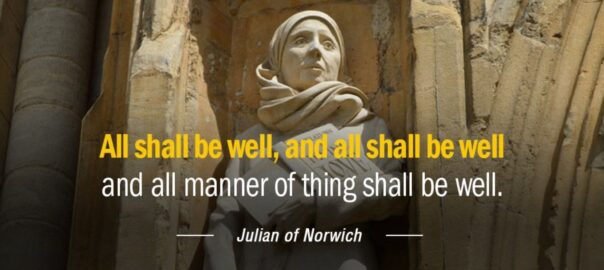
A friend asked recently, “How does the church love everyone and maintain the holy standards of Jesus for believers in the church? We say, “Welcome!” and sincerely desire that everyone feel the warmth of Christ’s love through us. At the same time, when we call people to believe the gospel and follow Christ wholeheartedly, there are moral absolutes that many unbelievers think make us intolerant. What is a way forward?”
A great question, and even the most thoughtful answer will still upset some! We live in a world where meaning is malleable and morality is relative. We live with competing world views and many looking at Christianity with hostility or indifference, seeing it in the rearview mirror of history.
It is essential that we define and integrate two key concepts so that we are loyal to the timeless faith once entrusted to the saints (I Corinthians 15:1-6; Jude 3) and timely in our presentation of truth with love, knowing that it is God’s will that the church reflect God’s glory, with women and men from all backgrounds, classes, cultures, and ethnicities (Galatians 3:28-4:7; Ephesians 2:11-21; 3:3-10; Revelation 7:9).
Hospitality to All
The first concept is the biblical call to hospitality: we welcome all seekers from any and every background to experience the love of Christ in community and discover, in the words of Augustine, “You have made us for Yourself, and our heart is restless until it rests in You.” Both Old and New Testaments call upon God’s people to love and serve the “outsiders” in their midst. Moses’ marriage, the stories of Naaman the Syrian healed by the Prophet Elijah and Ruth the Moabite convert, and the Book of Jonah were provocative reminders to God’s elect that they were chosen as a light to all nations (Isaiah 42-43, 49; 60-61). F.F. Bruce said it well a generation ago: God did not choose Israel to be an exclusive community, but that through them all nations would be blessed. The journeys of Jesus and the Apostles in Luke-Acts reinforce this embracing of all people. Luke 4, 7 and 19 find Jesus commending the faith of outsiders, welcoming the outcast, and challenging his fellow Jews to learn from them. The progress of mission in Acts moves from a Jewish prayer meeting to a universal faith. For almost 2000 years the church has failed deeply and at times succeeded miraculously in experiencing the new sociology where former enemies are friends and diverse classes and cultures find community in the power of the Holy Spirit.
Thoughtful believers affirm the wonder of the beautiful community the Holy Spirit creates when all are welcome and we dedicate ourselves to removing all human barriers to inclusion and empowerment (Ephesians 2:11-21; 3:3-10). Even more, we aim that diversity is not symbolic but substantive, not window dressing to assuage majority guilt, but in the water of the community as faith and baptism unite believers.
Practically, this means we welcome spiritual seekers and are unafraid to answer tough questions. We see every person we encounter as both beautiful and broken: a divine image-bearer and in need of the saving grace of Christ (Genesis 1-2; Psalm 8; Romans 3:21-31). We aspire to see all gospel churches filled with all kinds of people experiencing reconciliation, redemption, and restoration through the gospel and being included in the community (II Corinthians 5:11-6:2).
The call to follow
The second concept is a companion to the first: following Jesus requires the believer to die to their sovereignty – letting go of self-will, sinful actions and attitudes – and live under God’s loving and holy rule as a new creation in Christ, a member of the Body of Christ, and one liberated from darkness and called in to the light of faith and truth (II Corinthians 5:17; Colossians 1:15-23; Ephesians 4:1-12; 22-24). Put simply, being a Christ-follower includes obedience to God’s Word and a love for the ways of God – principles and practices that are much different that the unbelieving world.
We confess that too often the church has imposed religious traditions that are not rooted in the grace and truth of the Scriptures. With humility, we must repent of sometimes either being more religious than Jesus or making excuses for our proclivities toward idolatry, immorality, and injustice (Isaiah 44; Amos 2, 4: I John 5).
With love and grace, the church does promote the clear moral absolutes of Scripture. The Bible is replete with even the heroes of faith failing miserably. This does not however, change the divine standard or allow for excuses. When we fail, we are called to repent and allow the community to restore us (Galatians 6). If someone confesses Christ as Lord, they are incorporated into the Body of Christ and called to accountability in the local church (I Corinthians). Old beliefs and habits, attitudes and actions now yield to King Jesus, who calls us to a much better way – the way of humility and joy (Mark 10:45).
Women and men who come to our churches carry burdens and scars, histories of hurt, the strongholds of false ideologies and religions, as well as amazing potential as those for whom Christ died. We welcome all – and we call ALL to repentance and renewal, unselfish love and holiness born of gratitude for God’s grace (Deuteronomy 10:12-13; Ephesians 4:1-6). Here are some examples of what changes when Jesus is Lord:
- Gospel grace means sexual ethics are now celibacy for singles and fidelity in biblical marriages…and the community will walk with people from all arenas of gender identity as they learn conformity to Christ (not fallen subcultural norms).
- Business ethics change completely as all work is now for God’s glory and the good of others.
- Relationships of all kinds change for the better as unselfish love and wisdom guide deeds and words instead of selfish advancement.
- Political service is now for the common good, not personal power.
- The creative arts are unleashed, exposing our deep wounds and offering hope and healing.
Compassion without compromise and patient pilgrimage are the order of the day, in a world where inversion and perversion are celebrated (Romans 1:18-32). The early church faced similar challenges and rose to the occasion well. The Acts 15 council united Jew and Gentile around a common faith and morality. Gentiles did not need to become Jews to be included in the community and Jews did not need to reject their heritage. All followers of Christ were expected to say no to any other gods, reject sexual immorality, and live at peace with each other (I Corinthians 8-10).
Historians say that the reason Christianity grew in influence in the Roman Empire was the love and morality of the believers. Julian the Apostate, a pagan Emperor in the 360s AD, lamented that he could not rally people around the old Roman gods and virtues the way Christians could mobilize their communities for good. A century earlier, Roman governors in a variety of provinces asked that they be allowed to delay persecution of Christians because the Christians were helping serve the victims of the plague. The incarnational apologetic of a changed life and virtues born of gratitude are powerful demonstrations to God’s grace.
In sum, we are called to joyful hospitality, opening our communities to people of every background. We are also called to articulate clearly the holy love expected of followers of Jesus and aspire to the obedience of faith. We will be met with opposition, declared intolerant, and often marginalized for our “backward views.” In the words of N.T. Wright, we must remind ourselves and the world around us that the ethics of Scripture are the “radical” ones and represent a departure from the norms of pagan (and 21st C. neo-pagan) culture.
May we discern well how to welcome all around us and embrace the cross in our discipleship.




